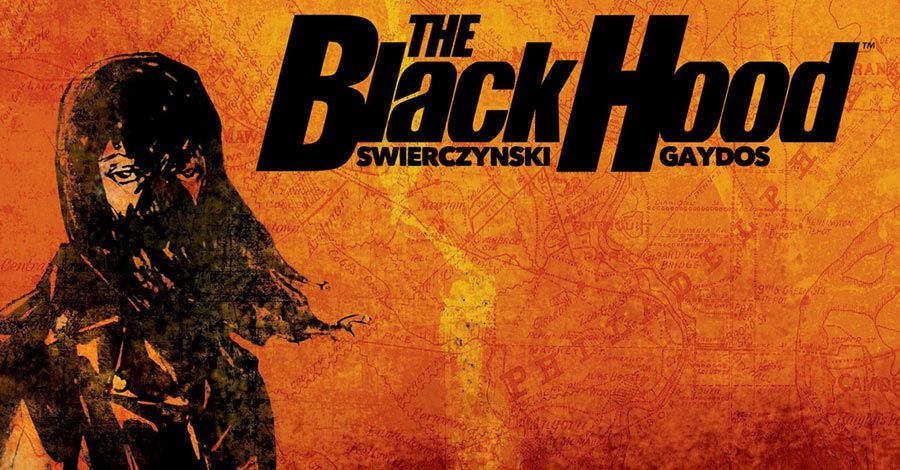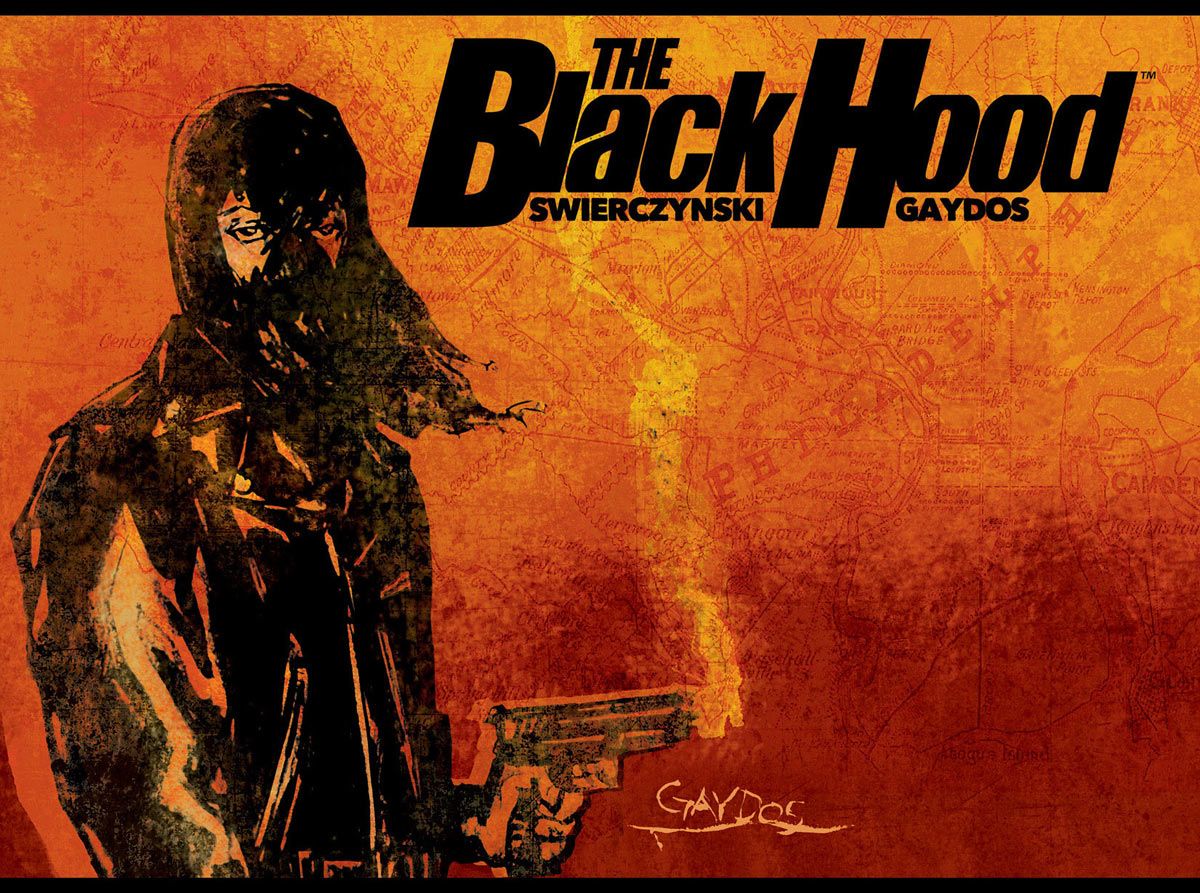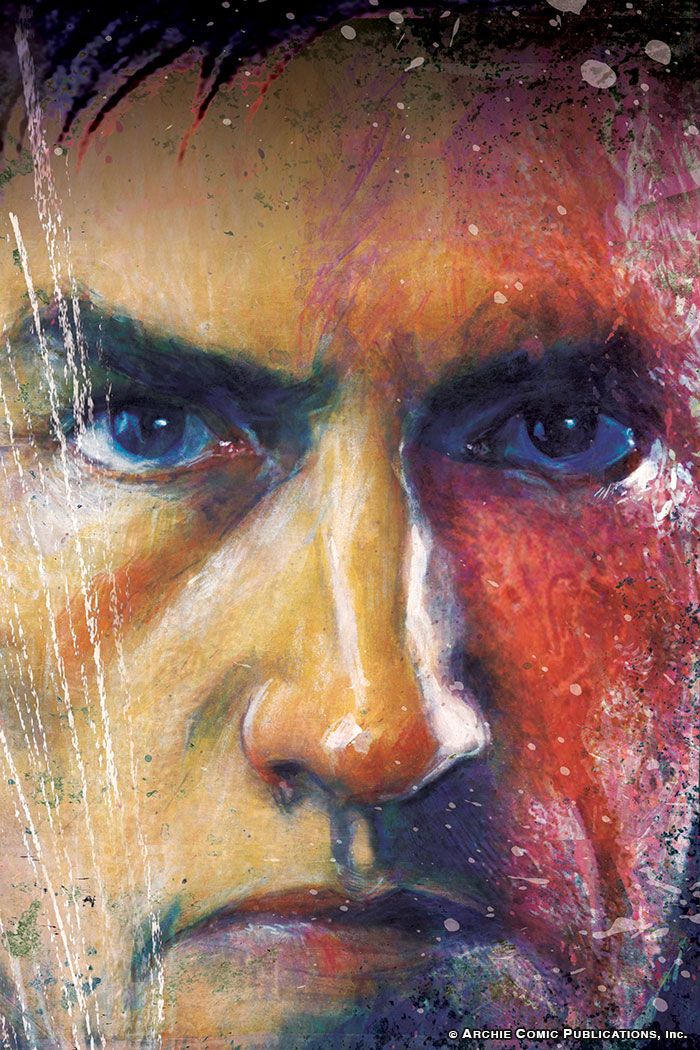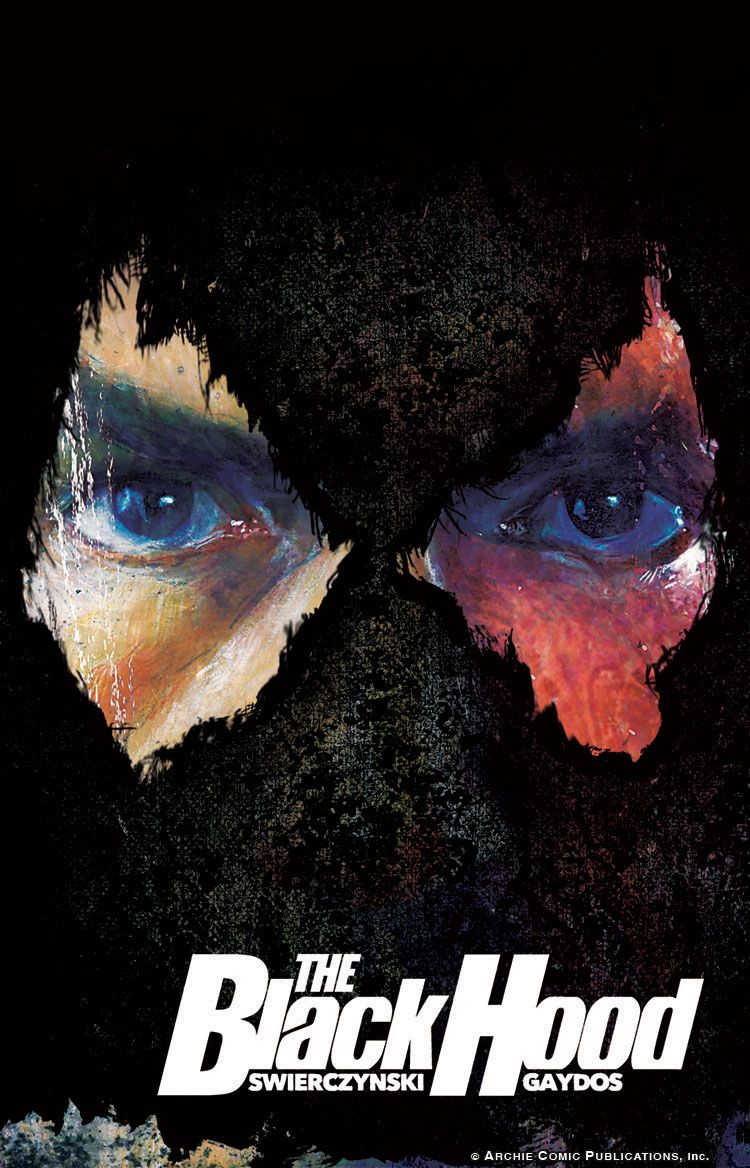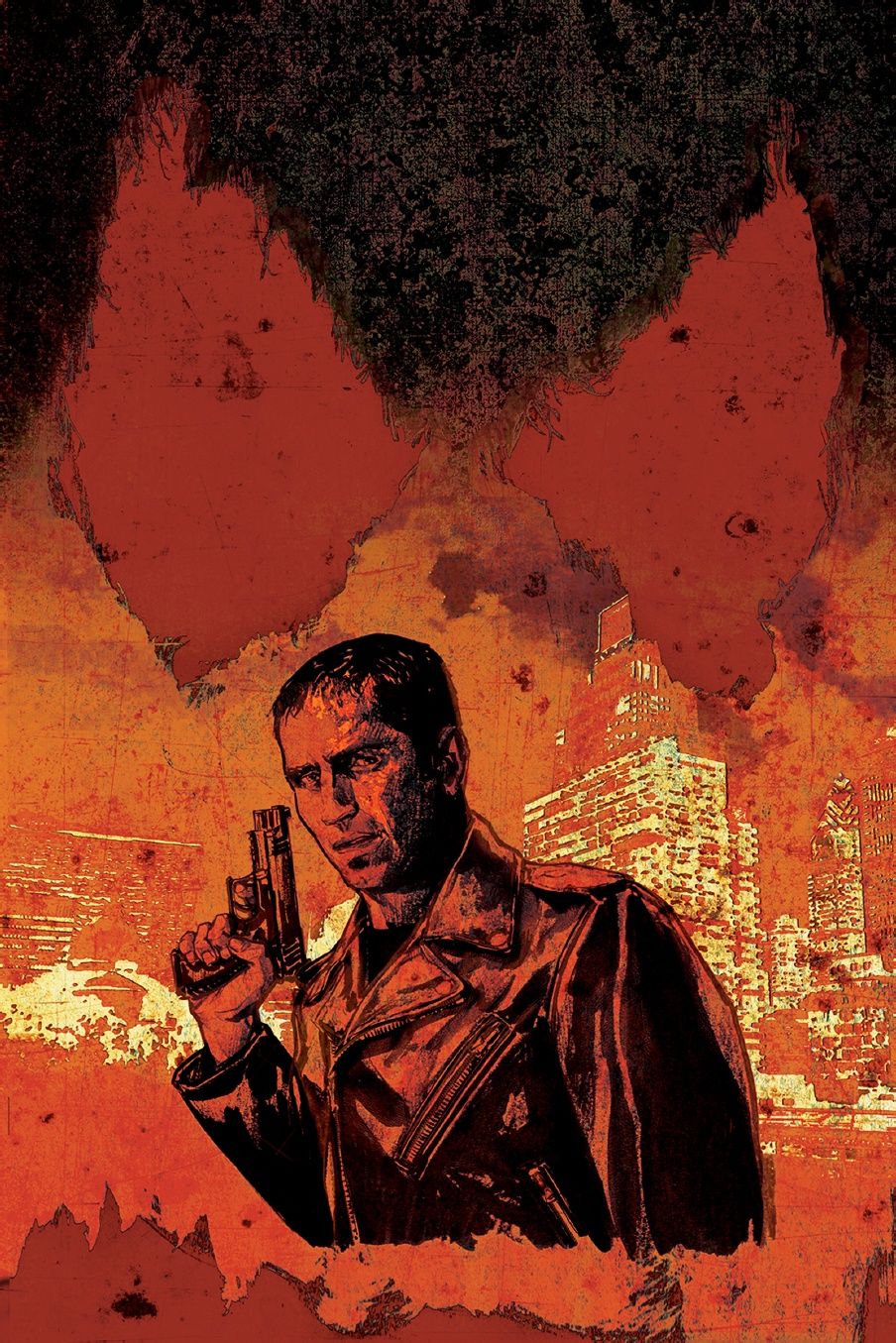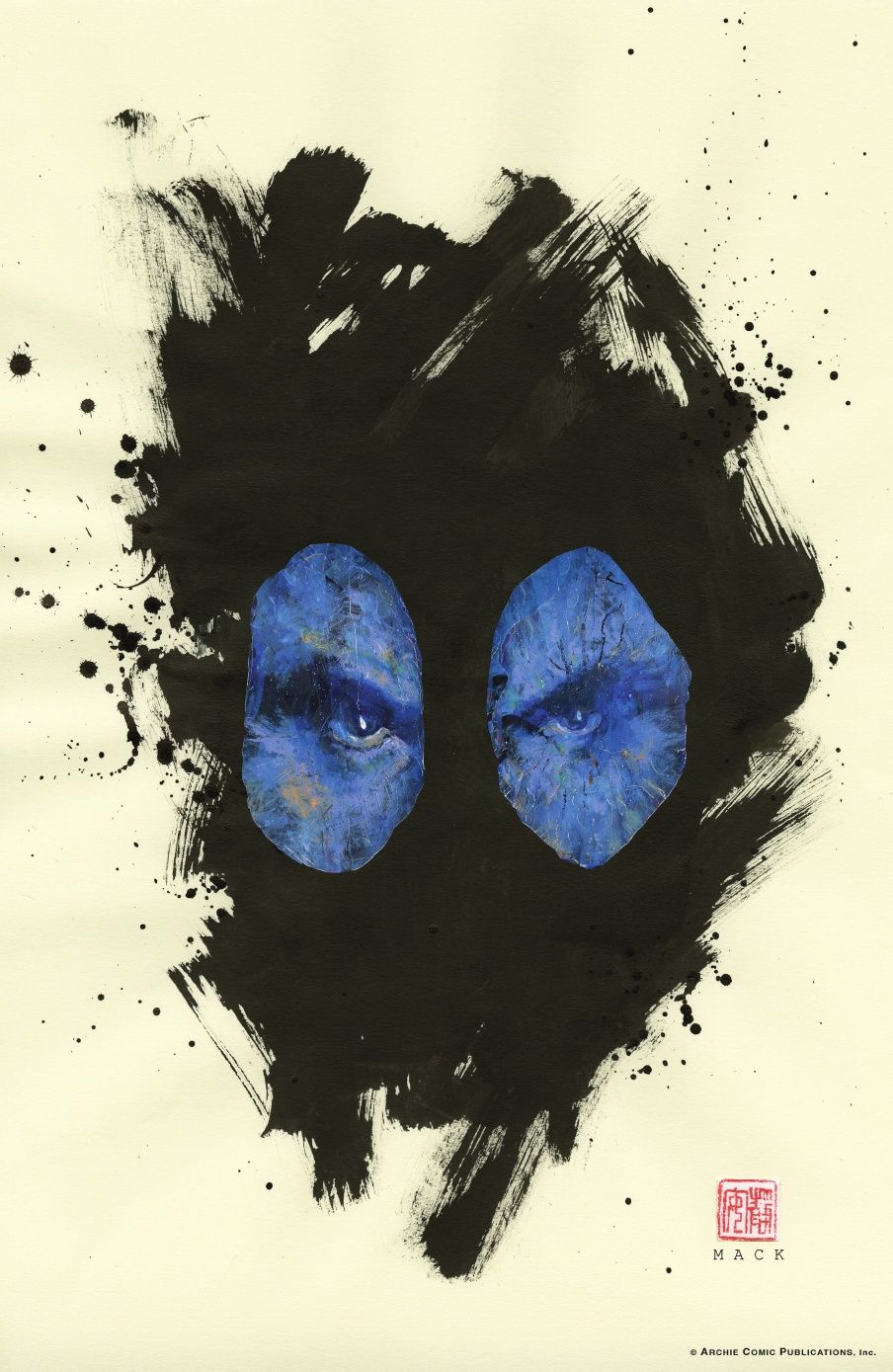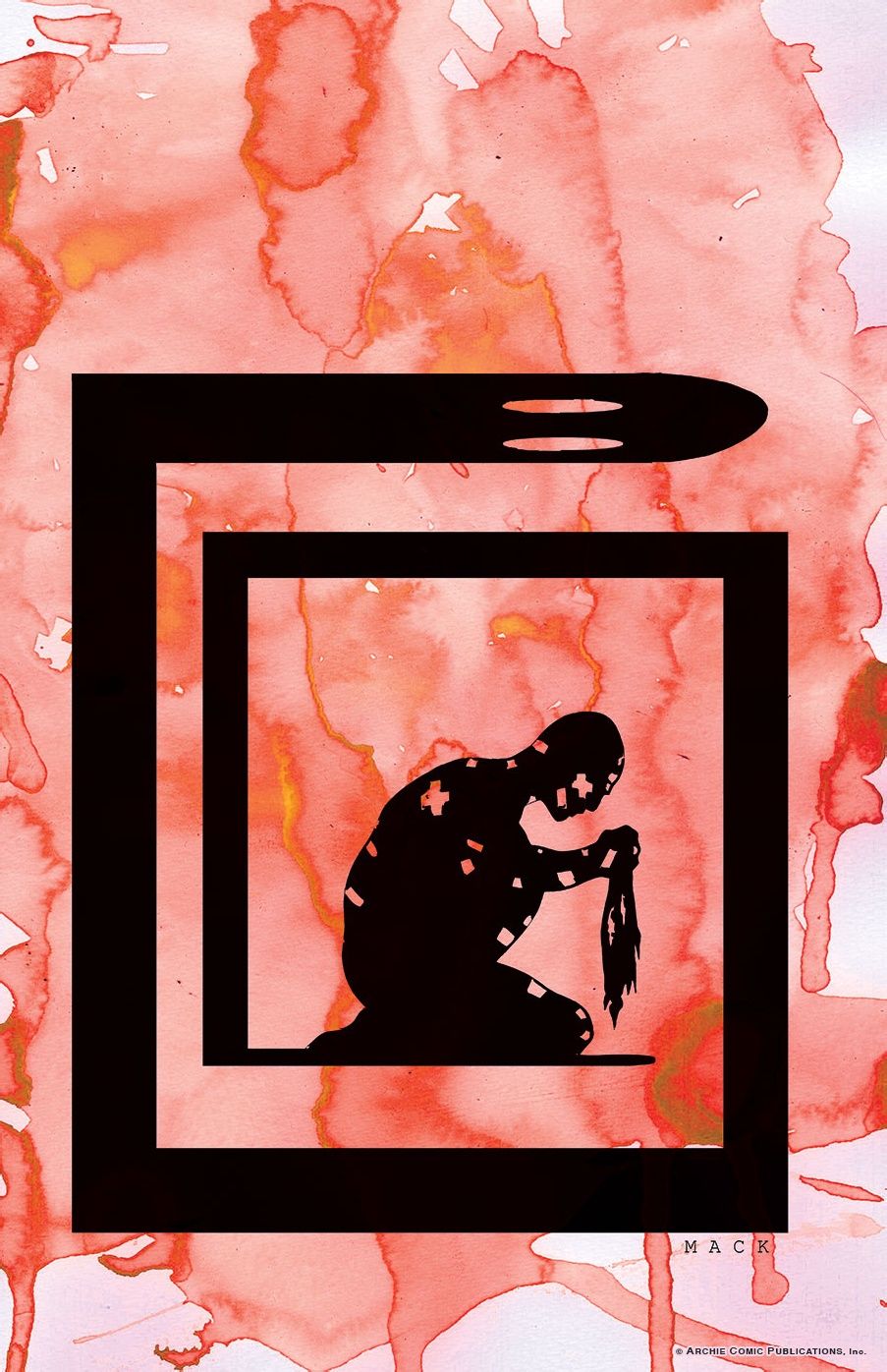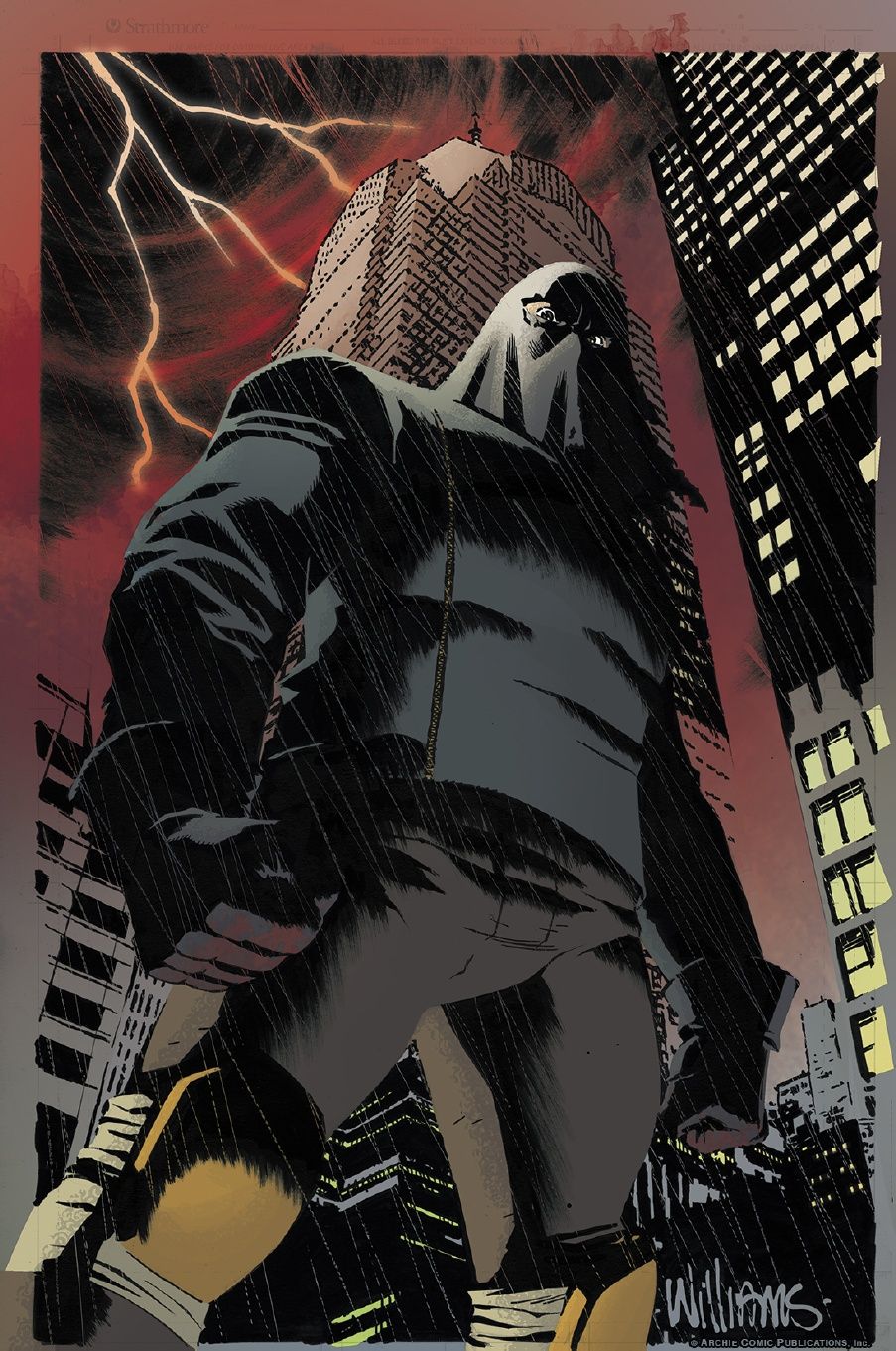By the time Duane Swierczynski is done with The Black Hood, you won't recognize him.
One of the launch titles for Archie Comics' rebranded Dark Circle Comics line, "The Black Hood" monthly series arrives early next year. And while Swierczysnki is already known for gritty superhero series like "X" and "Judge Dredd," the writer said his take on the Black Hood's traditional "cop gone rogue" setup will veer far from capes and tights.
NYCC EXCLUSIVE: Archie Unveils the Look of Dark Circle Comics
Teaming with artist Michael Gaydos, Swierczynski and the Dark Circle team are looking for the series to feel more like one of his crime novels. The writer spoke with CBR about his approach to the book, explaining how new Black Hood Greg Hettinger is scarred in more ways than one, why you won't see any supervillains at the launch and how each arc will be its own dramatic novel.
CBR News: Duane, let's start with a wide angle look at "Black Hood" as a project. You've done a lot of well received crime work both in your novels and in comics, and you've also had that crime flavor mix into the superhero world more than a few times. When approached to take on the Black Hood for Dark Circle, what piece did you need to do something different here?
Duane Swierczynski: When Alex Segura first approached me about the possibility, I honestly wasn't sure I wanted to write a superhero book. I pitched the most dark and fucked-up version of The Black Hood I could imagine, figuring that they're never go for it, and that I would end up using the central idea in a novel somewhere down the road. To my surprise (and delight), Alex and Paul Kaminski ended up liking my take, which is when I realized that this is the kind of "superhero book" I could get behind. And I really should have known better, because Alex is a great hardboiled crime writer, and we share the same twisted crime influences.
From an outside perspective, it seems like you're taking the core idea of the classic Black Hood character -- a cop forced to work outside the law -- and putting a new spin on it. From a character standpoint, what makes Greg Hettinger a unique kind of lead to fill in that classic trope?
Greg is a good cop from a good family, and he struggles every day to do the right thing. But you know what they say about no good deed going unpunished -- and that's especially true in my hometown, Philadelphia. So I wanted to show what it would take to turn a good cop into basically an outlaw who would wear a mask.
Of course, the series isn't about just one man driven by his own sense of right. The opening origin arc is titled "The Bullet's Kiss" and opens with Greg taking a life altering shot to the face. What kind of significance does that violent act hold for who Greg becomes as the Black Hood, and what kind of significance does it hold for the overall ideas you want to explore in this series?
Most superheroes who wear masks do so to hide their identities. This is Greg's primary motivation, too -- for reasons that will be explain in the second issue. But at first, he wears it to hide some fairly hideous scars. Greg used to be able to rely on a charming smile to get him out of a situation. But that's been stripped away, as well as his voice -- the shotgun blast left him with a speech impediment. So the act of putting on the mask is all about Greg hiding the monster he thinks he's become.
Alex Segura has talked about wanting to get a sense of the feel of your novels -- which often go from zero to 90 pace-wise and don't let up -- into this comic series. How does that pace impact your approach to this first arc, and are there ways in which writing this has turned out more like your books than your comics?
I'm actually taking a different approach to this series -- I'm slowing things down a bit and digging into Greg's head a bit more. (Alex and Paul encouraged me to try it this way, and I'm glad they did.) I'm lucky to have been paired with Michael Gaydos, who really excels as those quiet, introspective moments as well as the larger action sequences.
Where I am taking a more novelistic approach is in the narrative captions. Greg's telling his own story here, and I have him talking/writing in the first person past tense, as if he's already lived through the events of the first five issues, and he's giving some kind of deposition. (This is different from usual first person/present tense approach, which usually gives the illusion that a character is narrating in his/head in real time.)
And starting with issue #2, we also jump into other characters' POV a bit without jumping into their heads. So if this would have been a novel instead of a comic, I'd probably cut between first person sequences (inside Greg's head) and limited third person sequences (outside of Greg's head). Which, strangely enough, is what I did with my next novel, "Canary," which will be out the same month as "The Black Hood" #1.
Of course, superhero books are never built on their heroes alone, and we've heard so little about the rest of the cast of "The Black Hood" just yet. Can you tell us a little about the cast that revolves around Greg's life both on the force and off? What do those people and the city of Philadelphia add to the overall experience?
I do want to show a "real" Philadelphia as much as possible. This is the first time I've been able to do this in a comic since... geez, my arc in "Punisher MAX" five years ago? (Even then, it was a hyper-violent and stylized version of my city.) The neighborhoods shown are real, the crime is real, the drug problem is real, and as you mention, the characters are firmly based in reality, too. There are villains, to be sure, but they're not wearing spandex or plotting some evil scheme to unleash a shrinking ray on City Council or something.
Greg has some allies, too. He has a speech therapist, Jessie Dupree, who sees past his scars to the hero still inside Greg. He has a partner, Devon Allen, who tries to help, but can't seem to prevent Greg from circling the drain.
And villains are the other major component of a world like this. Without giving too much away, what kind of crime will the Black Hood be going after, and what kind of personal connection will he have with the villains on the other side of the law?
Let's just say that the villains Greg will be facing are more like the "villains" from "The Wire," and not the weirdo baddies from "Arrow" or "Gotham" or what have you.
Collaborators are a huge part of any comic, and here you've got some top level talent whose own careers fit the same "crime to comics" wheelhouse of your writing. In what ways do David Mack's covers set the tone for what comes inside the book? And how has seeing Michael Gaydos' interior art impacted the way you're approaching the long form story?
David Mack's covers are simply badass. I want to frame every single one of them that I've seen so far and hang them in my office. (My "office," however, is my bedroom, and my wife may object.)
I haven't seen any of Michael's interior pages yet -- he's literally just started #1 -- but I'm a huge fan of his work going back to "Alias." I can't wait to see what he does with Greg and his world.
Speaking of long form, what's your wider ambition for what this book will be? Obviously, we've got the whole opening arc to experience yet, but have you conceived of how this book will work as a serial superhero story?
I have. I see each arc as a compressed crime novel; the first five issues are an origin story, of sorts. I have a lot of trouble in mind for The Black Hood beyond that.
And Dark Circle is the spiritual heir to the Red Circle line, which is still a shared superhero universe. At this point, have you had any contact with your fellow Dark Circle creators or any thoughts as to how "The Black Hood" might connect with other characters of this world?
Seriously, no "shared universe" plans yet. But I would be curious to see how The Black Hood played with others...
Stay tuned for more on Dark Circle Comics on CBR.

